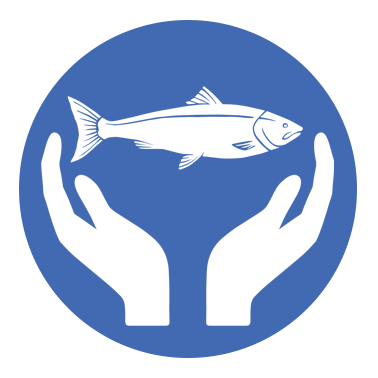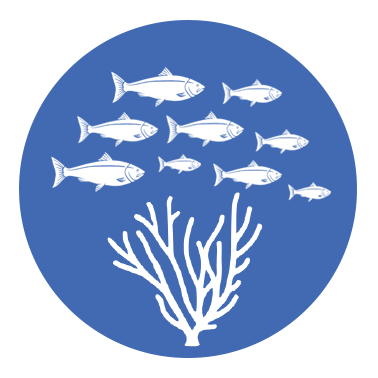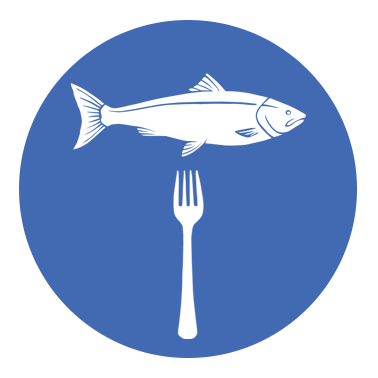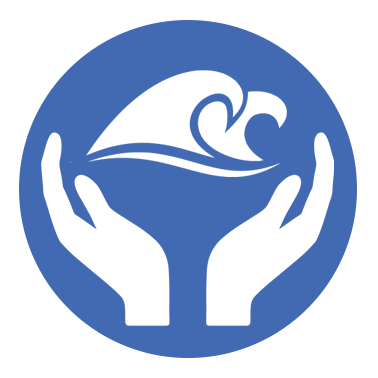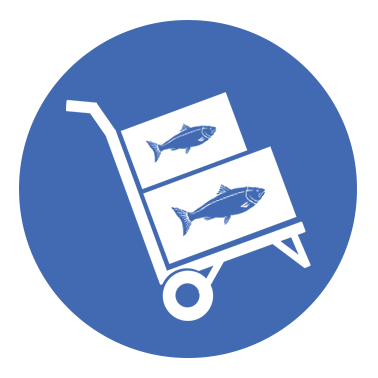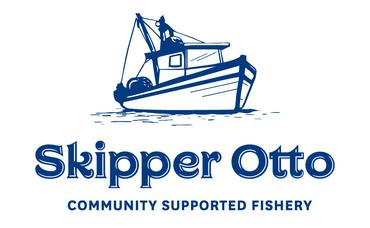Community-Based Fisheries:
Community-based fisheries enhance the social, ecological, and cultural fabric of our coastal communities. At the heart of community-based fisheries are community-based fishermen* who live and work in the communities where they fish. They are typically independent, owner-operators**, and are inherently committed to the long-term health of the marine ecosystem. Seafood supply chains and policies should foster and strengthen community-based fisheries.
Fair Access:
Community-based fisheries cannot survive without equitable access*** to the ocean commons. Fisheries access should be kept affordable, available to future generations, and connected to the communities where they are fished. The ocean and its resources should be held in public trust and not privatized.
Fair Price:
Paying a fair price to fishermen, processors, and shore-side businesses helps support local economies and increases the quality of life for all those whose hands touch our fish. Community-based seafood should be available and affordable for all communities, and must be balanced against the needs and limits of the ocean as well as fishermen’s ability to sustain a livelihood with dignity and joy. Paying a fair price is also based on a conservation ethic where fishermen are able to attain higher value for lower volume of catch, which places less pressure on the fish stocks.
Eating with the Ecosystem:
Eating with the ecosystem means matching our seafood consumption to the rhythms of nature and place. It means celebrating and respecting a region’s marine biodiversity by harvesting a diversity of seafood and respecting the unique seasonality of every species and fishery. It means appreciating the ocean as a complex ecological system and engaging and educating consumers to enable them to become conscious consumers of the ocean’s food production capacity.
Traceable and Simple Supply Chains:
Traceable and simple supply chains promote trust and a more direct relationship between fishermen, the public, consumers, retailers, wholesalers, managers and chefs. More direct and simple supply chains help maximize value to the fishermen and consumer. Information on who, how, where, and when a fish was caught, processed and distributed should be readily available to consumers. We encourage all seafood consumers to try local first.
Catch and Handle with Honor:
From sea to table, strict levels of quality control and safe handling practices ensure that we honor the fish, its life, and its role in our food system. This also means minimizing waste by using the whole animal as much as possible, and educating consumers about how to make use of and care for the whole fish.
Community and Ecosystem Based Fisheries Management:
Fisheries management is key for maintaining sustainable fish stocks and livelihoods. Management should be bottom-up, ecosystem-based, and foster collaboration between fishermen, scientists, policy makers, and the broader public. Management should combat illegal fishing, consolidation, and privatization. Management should also address non-fishing impacts that threaten the health of our fisheries, such as climate change, ocean acidification, and pollution.
Honoring the Ocean:
Seafood connects and incentivizes the broader public to care for marine ecosystems. By eating seafood and knowing who, what, when, and how a fish was caught, the public is taking the health of wild fisheries, coastal communities and the ocean into its own hands. Not only is the commitment to healthier marine ecosystems crucial, but it is also a moral imperative that ensures future generations will inherit a clean and healthy ocean.
Creativity and Collaboration:
Building a better seafood system requires innovation, creativity, and thinking outside the box. It also requires that innovative ideas are not isolated but rather spread through a network of diverse stakeholders working together, aligning around shared values, and acting. Creativity and networking fosters knowledge sharing, collective understanding, and mentorship needed to build a better future.
* This is an inclusive and gender-neutral term for us, and the one used most commonly among women who fish in our network. It’s meant to refer to those who might also use the terms fish harvesters, fisherwomen, fishermisses, fishers, and intertidal gatherers, as well as those practicing restorative aquaculture on a sustainable scale.
**Owner-operators are holders of fishing rights (through licenses or other legal means) who also operate the vessel fishing, thus ensuring a direct connection between fisheries resources and the fisherman.
***Access refers to two distinct concepts. The first is related to access to fishing rights for community-based fishermen. Due to regulations (e.g. area closures and privatization), non-fishing impacts (e.g. climate change and pollution), and development (e.g. working waterfront displacement and development) access for community-based fishermen is constantly threatened. Access also refers to food access. Skipper Otto’s and The LocalCatch network stand for seafood suppliers who want to ensure that their high-quality seafood is made available whenever possible to regions and communities that face challenges associated with food security.
